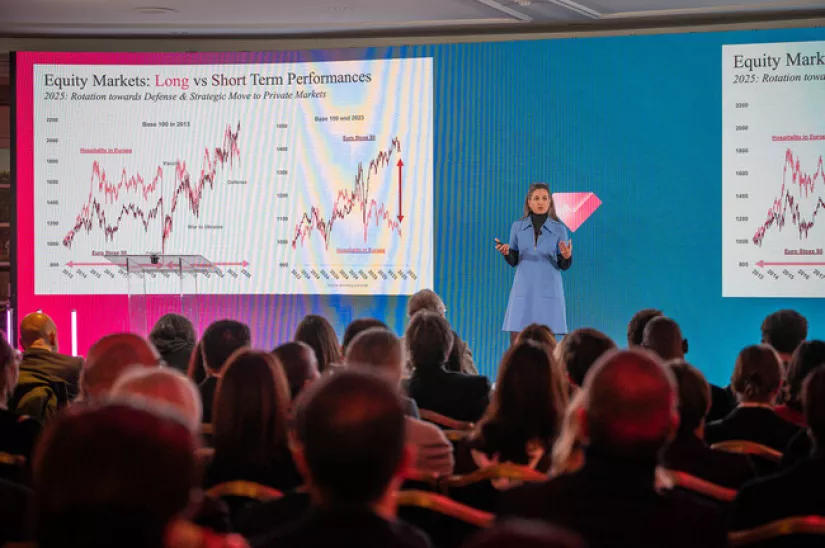
At the Hospitality Operator Forum, Béatrice Guedj delivered an unambiguous analysis: ‘Hospitality is becoming one of the most attractive assets for investors.’ This dynamic can be explained by solid fundamentals, but also by a strategic repositioning of European capital.
She points out that ‘listed markets are a good proxy for understanding why European hospitality is so popular with institutional investors today.’ Between 2013 and 2020, ‘the hospitality segment outperformed the Euro Stoxx 50,’ reflecting ‘a much more pronounced pan-European rise.’ As a result, the sector ‘continues to outperform other asset classes’.
This attractiveness is reinforced in a tense geopolitical environment. ‘Since Trump came to power, we have seen a kind of schism,’ she analyses. In the US bond market, ‘everything has become more volatile’, prompting ‘US investors to turn to Europe because they dislike the current uncertainty in their own market’. The hotel industry is therefore establishing itself as a safe haven, especially as ‘it has been much more resilient since 2022 than other sectors’.
The operational model is another key differentiator. ‘Hospitality is the only real estate sector where you can actually have a portion that is operated, unlike offices, housing or hospitals.’ This hybridisation makes it possible to secure and diversify revenues.
“Investors used to focus on buildings, but now they are targeting both buildings and funds, because that’s where the best ROI is. “
Despite a ‘lower volume observed between 2021 and 2025’, there is ‘no dislocation in the hotel market, unlike other asset classes — there is less chance of making a mistake’. Since 2024-2025, ‘capital loss has been largely offset,’ confirming the sector’s ability to absorb cycles.
Investment allocation is following the same trajectory. Before the pandemic, ‘hotels accounted for 5 to 7% of overall investment, compared with nearly 10% today, and as much as…







